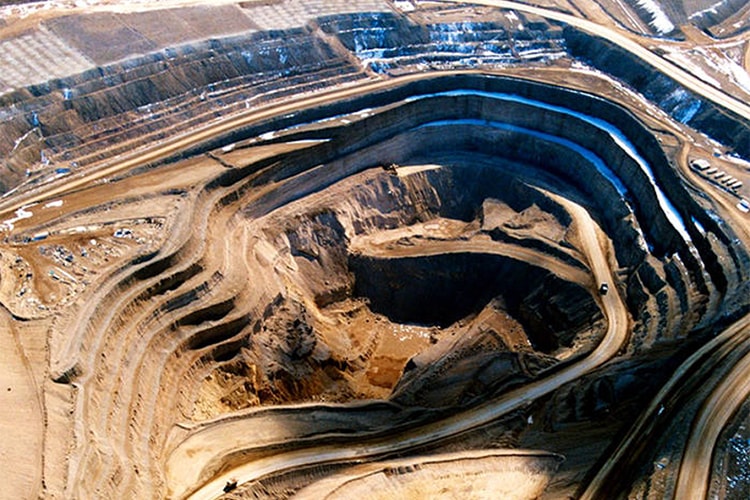Gold Mining in the United States

In 2018, the United States produced over 210 tons of gold worth over $8 billion, which makes the US the fourth largest gold producing nation in the world (after China, Russia, and Australia). While Alaska and Nevada account for over 90% of US gold mining, 12 states actively reported gold revenues in the past few years, including:
- Nevada
- Alaska
- Alabama
- New Mexico
- North Carolina
- Oregon
- Utah
- Colorado
- California
- South Dakota
- Montana
- Idaho
Gold Mining in Nevada
Gold mining in Nevada supports over 14,000 employees, and it’s estimated that another 75,000 jobs are dependent on the mining business, so gold mining plays an important role in the lives of many families. The challenge for mining operations around the world is to create, correct, and/or maintain mining operations that are safe, minimize damage to the earth, and rectify any damage that is done.
In a recent article in the Nevada Current (April 22, 2019) it was reported that Nevada was “ranked first nationally in the release of toxic chemicals per square mile in 2017.” While there is some controversy over the method used to define and calculate toxic chemicals, the aforementioned article does provide links to track which companies are polluting, what chemicals are the pollutants, and in which zip codes.
So, what are the mining operations in Nevada? There are mining corporations – some based in Nevada, and some outside – and active mines.
MINING CORPORATIONS IN NEVADA
- Barrick-Randgold. Canadian owned company with operations in Argentina, Australia, Canada, Chile, Dominican Republic, Papua New Guinea, Peru, Saudia Arabia, the US, DRC, Cote d’Ivoire, Mali, and Zambia. More than 75% of its gold production comes from the Americas. Both Barrick and Randgold (now merged) have had significant legal controversy over contamination, human rights, and land-use.
- Coeur Mining. American owned company with operations in Alaska, Nevada, Mexico, Argentina,and Bolivia. This company should not be confused with the Coeur d’Alene Superfund cite and settlement, which is owned by Hecla mining.
- Hecla Mining. American owned company currently operating primarily in the US and Canada.
- KGHM Polska Miedz. Polish multinational employing 34,000 people around the world. A leader in coppera and silver production, they operate open-pit and under-ground mines in Poland, Canada, the US, and Chile, and are actively investing in exploration and growth.
- Kinross Gold. Canadian company ranked one of the top 10 gold-mining companies in the world. They have open-pit and underground mines in the US, Brazil, Mauritania, Ghana, and Russia.In 2015, Kinross received an “A-” rating from Maclean’s magazine in their annual assessment of socially responsible companies. They have also been named to the Dow Jones Sustainability World Index three times. Though they do not have a perfect record, they fund very active CSR initiatives.
- Newmont Mining Corporation. American owned company with active gold mines in Nevada, Australia, Ghana, Peru, and Suriname. They employ approximately 24,660 employees and contractors worldwide. They have experienced numerous legal controversies over health, safety, financial irregularities, employee relations, contamination of land and water, and destruction of natural habitats. Newmont has had legal problems in every country in which it operates.
- Silver Standard Resources. Canadian-owned mining company with operations in Nevada, Canada, and Argentina. They are also funding exploration efforts throughout the Americas.
- Sprott Mining. Sprott Mining is the only privately-owned gold mining operation in the Americas, owned by Eric Sprott, a Canadian billionaire. He is the owner of the Jerritt Canyon complex, which operates exclusively in Nevada. As a private company, very little information is available on this operation, which makes an important target for regular study and inquiry.
On Wikipedia there is a list of active gold mines in Nevada. At the time this article was written, there were 26 operations in Nevada.
Gold Mining in Alaska
Gold mining has long been a major industry in Alaska, and was one of the reasons the United States was originally interested in annexing the territory. Russian explorers had discovered placer(streambed) gold in Alaska in 1848. The US started active gold mining near Juneau in the 1870s. Since then, gold has been found in many areas of Alaska.
Today, four large-scale and a number of small-scale mines operate in Alaska, a mix of hard rock and placer operations.
HARD ROCK MINES IN ALASKA
- Fort Knox Mine. Owned by Kinross Gold Corporation (a Canadian company), this is an open-pit operation using carbon-in-pulp, leach, and gravity processes. It employs over 650 people.
- Pogo mine. This is an underground mine employing 350 people. The Pogo mine is owned by Sumitomo Corp’s (a Japanese Kieretsu) Sumitomo Metal Mining
- Kensington mine, owned by Coeur Mining (a US corporation). This is an underground mine employing 332 people.
- Greens Creek Mine. Operated by Hecla Mining (a US corporation). This mine is also a large silver, lead, and zinc producing mine that employs over 400 people. Hecla is best known for their mining operations in Idaho, which were declared a Superfund site by the Environmental Protection Agency in the 1982 due to extensive contamination of land, water, and air. But that is related only to the Idaho site, not the Alaska operations.
PLACER MINING
Placer Mining in Alaska is widespread and is known to produce around 8% of total Alaska gold. This is an area that bears monitoring, as the reporting to the Mining Safety and Health Administration is considered to be an under-representation (perhaps a significant one) of actual activity.
EXPLORATION
There are many significant exploration efforts for gold in Alaska at this time, several of which look highly promising. This is an aspect that should be monitored closely for impacts on native populations, nature, water, and land. This Wikipedia article does not appear to be consistently updated, but it does provide an overview of Alaskan gold mining.
Source: Chicago Responsible Jewelry Conference